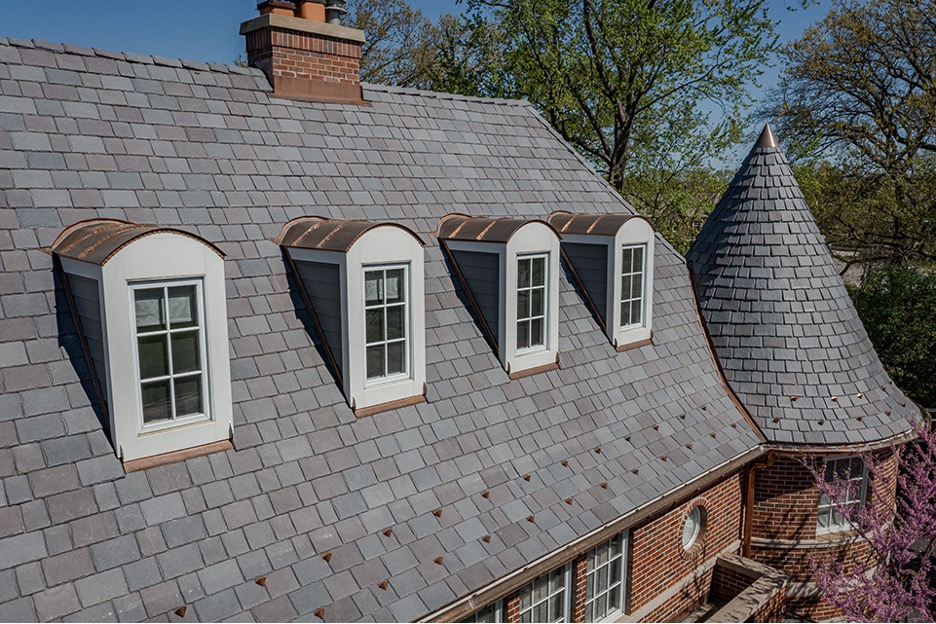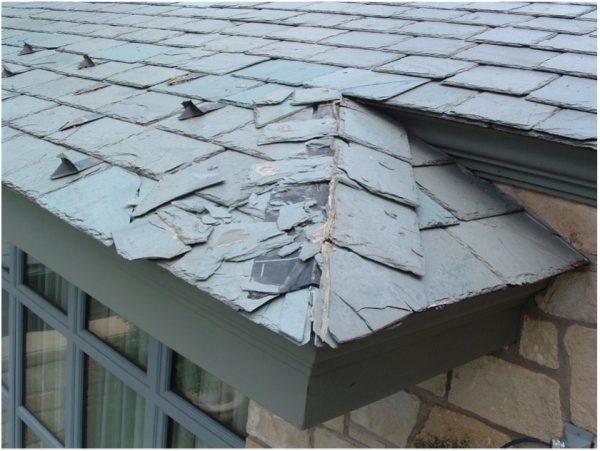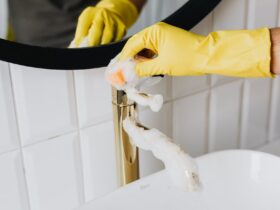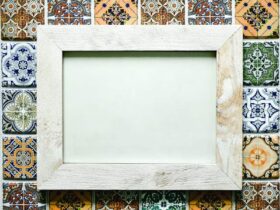Slate tile is a highly durable material for flooring. It is resistant to scratches and stains and can last for decades if properly maintained.
Slate is a popular choice for homeowners looking for a durable and long-lasting flooring option. Its inherent strength and durability make it resistant to cracks and scratches, as well as stain-resistant, requiring less maintenance compared to other flooring materials like hardwood or laminate.
However, slate can be difficult to install and may require some maintenance to keep its surface comfortable and warm. This article explores the durability of slate flooring, its advantages and disadvantages, and some frequently asked questions about its use as a flooring option.
Pros Of Slate Flooring
Slate flooring is highly durable, making it a popular choice for flooring. It is resistant to scratches and cracks and can last for decades with proper maintenance. However, it can be difficult to install and requires frequent maintenance.
Durable
Slate flooring is known for its durability. Due to its natural formation process and hard characteristic, slate has been a popular choice for flooring since ancient times. It can withstand high foot traffic and heavy usage, making it an excellent choice for high-traffic areas. Slate tile has a low absorption rate, which means you don’t have to worry about damaging it with spills or stains. Its denseness and hardness make it resistant to scratches and chips, so you can be sure that your slate flooring will remain beautiful for years to come.
Stain-resistant
Another great feature of slate tile flooring is its stain-resistant properties. A properly sealed slate floor provides an impermeable surface, which makes it almost impossible for any liquid to seep into it. The density of slate and the sealant applied after installation makes it an ideal flooring option for homes with pets or kids. Since slate has a non-porous surface, it can resist stains from food, beverages, and other spills. In case of an accidental spill, you can simply wipe it off with a cloth, and your slate tile will retain its natural beauty and shine.
Highly Resilient
Slate tile flooring is highly resilient, meaning it can retain its shape and beauty for many years to come. Its unique physical properties make it resistant to weathering, abrasion, and chemical reactions. Slate tile flooring also has a high thermal mass, making it an ideal choice for regions that experience extreme hot and cold temperatures. This characteristic ensures that the floor remains cool in the summer and warm during winter. Furthermore, it is also a fire-resistant material, making it a safe option for your home.
Overall, slate tile flooring offers numerous advantages that make it a popular choice for homeowners. Its durability, stain-resistance, and resilience make it an ideal flooring option for high-traffic areas of your home. Furthermore, its natural beauty and unique aesthetic appeal can enhance the overall aesthetics of your interiors.

Credit: www.houzz.com
Cons Of Slate Flooring
Slate flooring is durable, but it has some cons. It can be difficult to install, it requires maintenance, and it can be uncomfortable due to its cold and hard surface. Also, slate may have inconsistencies in its pattern and texture.
Difficult To Install
Slate tile is notoriously difficult to install correctly for those who are inexperienced with this type of flooring. Proper installation is necessary to ensure the tiles remain level and avoid cracking, which can be costly and time-consuming to fix. It is recommended to have a professional installer with experience in slate flooring handle the installation process.
Needs Maintenance
While slate is a durable flooring material, it still requires regular maintenance to keep it looking its best. Slate tiles must be sealed to protect them against stains and damage caused by moisture. Additionally, slate tiles should be regularly cleaned and resealed every few years to maintain their appearance and structural integrity.
Uncomfortable Surface
Slate is known for its rough and uneven texture, which can be unpleasant to walk on and uncomfortable for those who spend a lot of time standing or walking in areas with slate flooring. Additionally, slate can be slippery when wet, which can be a safety hazard for some individuals.
Cold, Hard Surface
Another disadvantage of slate flooring is that it is a cold and hard surface, making it uncomfortable for some people, especially during colder months. If installed in areas with high foot traffic, slate floors can also be noisy, adding to its uncomfortable nature.
Inconsistency In Quality
Slate tiles can vary in color and texture, which can affect the overall appearance of the flooring. It is important to make sure that the slate tiles being used for a specific project are of consistent quality to avoid any inconsistencies in the appearance of the finished flooring. Additionally, some slate tiles may be prone to flaking or chipping, which can affect their durability over time.
In summary, slate flooring has its pros and cons, and it is essential to weigh both options before making a decision. While slate is durable, it requires proper maintenance, can be uncomfortable on certain surfaces, and may have inconsistencies in quality. It is also difficult to install, so it is recommended to hire a professional to tackle this job. Ultimately, deciding if slate flooring is the best choice for your project depends on your personal preferences, budget, and lifestyle needs.
Scratch Resistance Of Slate
Slate tile is durable, but it may scratch more easily than other flooring options. Properly sealed slate is stain-resistant, but if a stain should occur, you can use a stain-removal poultice for stone flooring, available in stores. Slate can last for decades if properly maintained, making it a long-lasting flooring option.
Scratch Resistance of Slate
Slate flooring is a popular choice among homeowners, architects, and designers. One of the reasons for its popularity is its durability. However, when it comes to scratch resistance, slate is not the best option. In this section, we will dive deeper into the scratch resistance of slate tiles.
Slate Scratches More Easily Than Other Options
Slate is a sedimentary rock that is naturally textured and layered. These layers can make it prone to scratches. While slate is a hard material, it is not as hard as other natural stones like granite or marble. Slate scratches more easily than these stones, and it can also scratch easier than other flooring options like hardwood or ceramic tiles.
Mineral Oil Can Help Hide Scratches
If a scratch does occur on your slate floor, you may be able to hide it by applying a bit of mineral oil. Mineral oil is a great way to hide scratches on slate because it can seep into the stone and darken the scratch. This will make the scratch less noticeable and blend in with the natural color of the slate.
Stain Removal Poultice Available For Stone Flooring
Properly sealed slate is stain-resistant, but accidents can still happen. If a stain should occur, you can use a stain-removal poultice for stone flooring, available in stores. The poultice is a paste made of white absorbent materials that are mixed with a chemical to dissolve the stain. The paste is then applied to the stained area of the slate and left to sit for several hours. After the paste is removed, the stain should be gone.
In conclusion, while slate can be durable, it is not the best option when it comes to scratch resistance. However, with proper care and maintenance, your slate floor can still look beautiful for many years. Remember to apply a sealant to protect your slate from stains and scratches, and if a scratch does occur, try using mineral oil to hide it.
Durability Of Slate
Slate is a natural stone flooring material that is known for its unique and beautiful appearance. Many people wonder about the durability of slate before choosing it as their flooring option. In this blog post, we will discuss the durability of slate and answer some common questions related to it.
Slate Tiles Don’t Crack Or Split Easily
If you are looking for a durable flooring material, slate is a great option. It is one of the strongest natural stone flooring materials, and if you install slate tiles in any reasonable thickness, they will not easily split or crack. Although slate can split under high temperatures, it’s strong enough to withstand most wear and tear.
Stronger Than Some Flooring Options
If you compare slate with other flooring options, you will find it to be a stronger material. For example, natural slate is stronger than porcelain tiles. Porcelain tiles are a popular choice among homeowners because they are durable but slate is a more sophisticated and stronger alternative to porcelain.
Can Last For Decades With Proper Maintenance
One of the essential factors in the long life of slate tiles is maintenance. Slate is one of the strongest natural stone flooring materials, and it can last for decades if it’s properly maintained. Along with regular cleaning, sealing and resealing, slate needs attention to every detail. Proper maintenance can prevent any subpar results in suspended beauty and longevity of slate tiles.
In conclusion, slate is a durable flooring option and perfect for homeowners who anticipate heavy foot traffic. It can last for decades with proper maintenance and is stronger than other flooring options. You don’t need to worry about slate tiles cracking or splitting easily, making it the perfect option for a long-lasting and stunningly beautiful floor.

Credit: www.davinciroofscapes.com
Frequently Asked Questions Of Is Slate Tile Durable
What Are The Disadvantages Of Slate Flooring?
Slate flooring has a few disadvantages like difficult installation, high maintenance, discomfort due to cold and hard surface, scratches, and inconsistency. However, slate is a durable and long-lasting material resistant to stains and scratches. Properly sealed slate tiles can last for decades if maintained properly. Slate is a good option for those who prefer a unique and beautiful look for their floors.
Does Slate Tile Scratch Easily?
Slate flooring does scratch easily compared to other floors. However, by applying mineral oil on scratches, it may be hidden. Stain-resistant slate is achieved through proper sealing, but a stain-removal poultice could help if staining does occur. Overall, slate is durable and could last for decades with proper maintenance.
Will Slate Tile Crack?
Slate in any reasonable thickness will not easily split or crack, making it a durable flooring material. However, exposure to very high temperatures can cause it to split. With proper sealing, slate becomes stain-resistant and scratches can be hidden with mineral oil.
Is Slate Stronger Than Porcelain?
Porcelain is stronger than slate. Although slate is a popular choice for homeowners because of its sleek design and durability, porcelain has proven to be far superior due to its advanced strength and sophistication. Porcelain tiles also require less maintenance and offer more design choices.
How Durable Is Slate Tile Flooring?
Slate tile flooring is highly durable and can last for decades if maintained properly.
Conclusion
Overall, it can be concluded that slate tile is a durable flooring option that can withstand wear and tear for decades if properly installed and maintained. Although it can scratch more easily than other flooring materials, it is stain-resistant and can be repaired with a bit of mineral oil or a stain-removal poultice.
Additionally, slate is less likely to crack or split than other natural stone materials, making it a strong choice for those looking for a durable flooring option. Ultimately, the pros and cons of slate tile should be considered carefully before making a decision, but its durability is one of its biggest selling points.









Leave a Reply